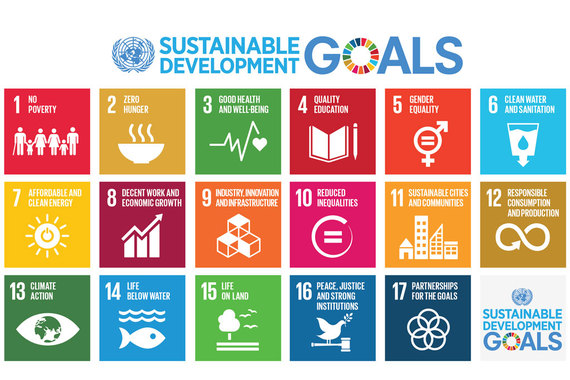By Jan Eliasson*
In today's world, a good international solution is in the national interest. UN Member States and the international community must act on that understanding as we work to achieve the great promise embodied in the two landmark agreements of 2015: the 2030 Sustainable Development Agenda and the Paris Agreement on climate change.
The 2030 Agenda is the most transformative development agenda ever adopted by Member States of the United Nations. World leaders pledged to leave no one behind, and to pursue 17 Sustainable Development Goals (SDGs) that aim to "free all human beings from the tyranny of poverty and want, and to heal and secure our planet." Four guiding principles can help make this happen.
First, universality. The Agenda is to be implemented not just in developing countries but in all states - rich and poor, large and small. The SDGs are meant to provide a horizon of hope to people everywhere, especially to those who live on the margins of society or in States ravaged by conflict.
Second, national ownership. Our experience over the past 15 years with the Millennium Development Goals highlighted the central role of governments in setting the direction and creating the conditions for implementation. Strong government leadership can unleash social and human capital, and can create the environment needed for the private sector to innovate and invest. I am encouraged that several governments are already framing national strategies and planning on the basis of the SDGs.
Third, comprehensiveness. The SDGs connect the dots between peace and security, development and human rights - the three pillars of the United Nations. They are interrelated and interdependent, cross-cutting and mutually reinforcing. Advancing on one will trigger progress on others. Implementing the 2030 Agenda and Paris Agreement therefore calls for a whole-of-government, whole-of-society approach.
Fourth, accountability. UN Member States have committed to regularly review implementation of the SDGs at the country level. Legislative bodies and audit institutions should have the space and capacity to monitor progress, ensure that commitments are being met and recommend ways to fill gaps. Building national statistical capacity will be an integral part of this work. Quality data is essential to inform institutional and policy changes. The new agenda also commits countries to present national reviews at the UN High-level Political Forum on Sustainable Development. The first such follow-up session will take place at UN Headquarters in New York in July.
The 2030 Agenda and the Paris Agreement are historic achievements. They are invitations to collaboration between and within nations, and among the full range of actors in civil society, the business community and the academic world. At a time when many countries face crises, conflicts and economic stress, it is a sign of hope that UN Member States have come together in common cause.
Our challenge now is to use these dynamic tools, and translate these agreements into realities for people on the ground. The United Nations is strongly committed to helping to mobilize the world to make collective progress towards a more peaceful and equitable world, a healthy planet, and a life of dignity for all.
_________________
The author is Deputy Secretary-General of the United Nations.

